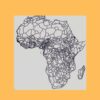This is a crucial moment for the International Criminal Court. If it drops the ball or the UN Security Council (UNSC) kicks the Kenyan cases into the long grass, the ICC is finished. At present the Court has agreed – reluctantly – to a postponement of the cases against President Uhuru Kenyatta and Vice-President William Ruto until February. Interestingly it has done so because the prosecutors did not object – they wanted more time to present witnesses. The Court did not believe that Kenyatta’s presidential duties were a reason to delay the trial.
African heads of government have denounced the ICC as disproportionately focusing on the continent. In terms of numbers, they are right. All eight current cases before the ICC are African. Four of them are at the request of the African governments themselves and two were begun with the full support of African governments. The other two were referred to the court by the UN Security Council. Of the seven other cases being investigated by the ICC two are African.
So what on earth were the African presidents going on about when they complained at their recent meeting in Addis Ababa that Africa was being unfairly targeted? This is a specious, self-serving argument that assumes they are above the law. I was shocked to see Mrs Nkosasana Zuma, Chair of the African Union, joining in. My question to them is where else in the world are atrocities happening and why aren’t you bringing them to the attention of the ICC? Syria? It is being investigated already.
Two other cases that seem to fit the Court’s mandate are George Bush and Tony Blair. Their illegal invasion of Iraq in 2003 based on false justification for war and the atrocities that followed are an obvious case for prosecution and would give the ICC profound and universal credibility. The fact is that, Iraq and Afghanistan excepted, the world’s most destructive wars and worst atrocities since 2002 when the Court was set up, have occurred in Africa.
The principle that no one is above the law must be total and universal. That is why the law is portrayed as blind: It does not matter who you are, everyone is equal in the eyes of the law. The ICC has already bent over backwards to accommodate President Kenyatta who stood for election with his former enemy, William Ruto, as his running mate, even though the charges had already been laid. And Kenyans voted for them in the knowledge they would be on trial. Most politicians faced with such charges would step aside to face justice and clear their names before standing for election. And the Kenyan parliament was given the choice: set up a special court in Kenya to try to instigators of the 2008 violence or send them to The Hague. The politicians voted to go to The Hague. “Don’t be vague. Go to the Hague” was the slogan adapted from the old whisky ads.
That shows that Kenyan parliamentarians did not trust their own courts or they believed that the ICC would never act. They were wrong. Now they must face the consequences.
Kenyatta and Ruto might also have argued that the selection of who should be charged was biased. They would have a point. The list was too balanced and neat to be an honest indictment of the major perpetrators – three from each side, three politicians, two public servants and one person from civil society. Two others, Mwai Kibaki and Raila Odinga, might also have been on it, but someone had to form a coalition to run Kenya after that terrible election. Very few Kenyan politicians from the main parties had completely clean hands. The charges against three of the original six have now been dropped leaving President Kenyatta, Vice-President Ruto and, somewhat incongruously, Joseph arap Sang, a radio announcer, facing justice.
Kenyatta and Ruto have asked for a year’s postponement and that will be decided by the Assembly of ICC member states at its annual meeting on November 20th. Having already agreed to a postponement, the Court itself will argue that there will be no more delays. So it will be up to the world’s politicians. They will have to judge whether Kenya is secure enough to run itself with occasional skype calls and emails from Holland, or whether it will chug along as usual. The stakes are very high, not least in Kenya itself where there will be weeks, months even, of daily reports of murder and mayhem committed in 2008 reported in the press. Knowing that little or nothing has been done for the victims, no effective programmes of return or resettlement for the displaced and no effective national policy of truth-telling and reconciliation, these revelations could be explosive.
Kenya is not just another African country. It is the gateway to East Africa, which South Sudan, Uganda, eastern Congo, Rwanda, Burundi, northern Tanzania depend on. Kenya is the main economic driver of the region with the most efficient banking sector and economy. It has been a key ally of the West in many ways, not least as a base for patrolling the Indian Ocean and training the UK and US armies in tropical conditions. What happens in Kenya has the potential to impact the lives of millions of people.

